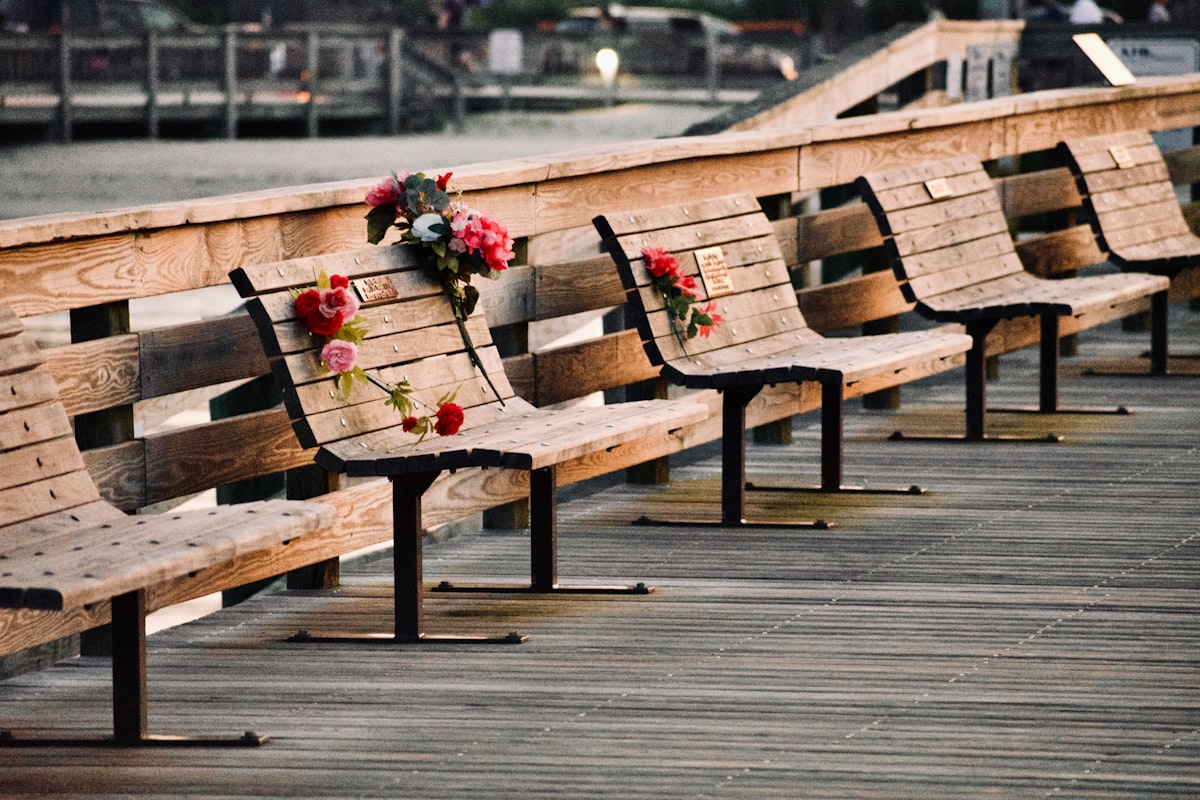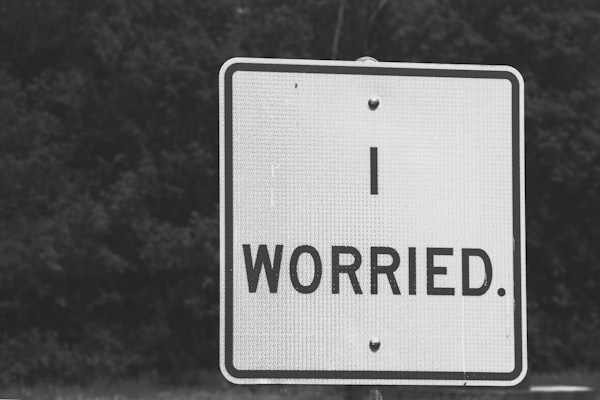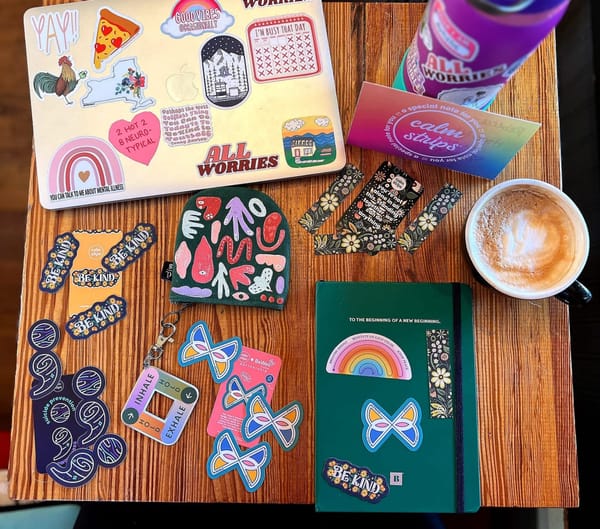What I've Learned About Grieving After Seven Years
Healing is never a linear process. After seven years without my father, I'm sharing what I've learned about grief.

Hey friends! Today I want to talk about something kind of heavy: grief.
This upcoming Sunday will mark seven years since my father passed away and, believe it or not, I'm still learning new things about what it means to grieve. I was 24 years old when I lost my father and to say I was unprepared is an understatement. Before I lost my father I had plenty of ideas about what it might be like to lose a loved one. The reality was much different because the truth is nothing can ever really prepare you for what it's like to suffer such a monumental loss.
So, as the anniversary of my father's death approaches, I thought I'd write about some of the things that I've learned about grieving over the past seven years. I hope that it will provide some comfort if you've recently (or even not-so-recently) lost a loved one and some understanding if someone you know is grieving and you just don't know what to do to help.

Losing a Loved One Feels Impossible
Impossible. That's really the best way to describe it. The night my father died and during the months that followed my mind had trouble grasping the fact that he was gone. Even now, after seven years, I sometimes catch myself starting to pick up the phone to call him like it's totally normal. I think the initial shock is your mind's defense mechanism because it's really too much to handle all at once. Making the tiniest decisions about anything at all felt too difficult and I felt like I was in a constant daze. It's important to note, however, that it won't feel impossible forever. In the beginning, I couldn't imagine a time when I wouldn't feel so horrible, but that time came and it will for you, too.
You Can't Schedule Certain Times to Grieve
Scheduling set times to concentrate on grieving won't quicken the process or make it easier because the truth is, grief hits you at the weirdest times whether you want it to or not. Pushing it away because it isn't the right time will only make it worse. Similarly, trying to avoid it completely won't work either.
The Best Way Out Is Always Through
This was one of the worst realizations I came to when I first lost my father: there is no way around it, you just need to grieve. You can't fight it. One night a few months after my father died I was standing in the kitchen trying to pick a mug for tea when I saw one of his favorites on the shelf. The next thing I knew I was sobbing on the floor. Instead of trying to stop it I just went with it and that's been my method for the past seven years. Sometimes it's a song that will set me off or a certain smell but whenever it happens I just let it happen and that's truly the only way to make it through.
There Is No Time Limit
A lot of times people will expect that after a few months, you'll just be "over it." This is obviously not the case, as it's been seven years for me and I'm not "over it." Don't try to "should" yourself into thinking it's been however many days, months, years and things should be better now- that type of thinking will only make you feel worse. There are no shoulds. Each person grieves differently and for different lengths of time.
People Won't Know What to Say and That's OK
When you lose a loved one, you realize there are two groups of people: people who can empathize because they have experienced loss, too, and people who have never experienced loss and fumble for the right words to make you feel better and fix your pain. The second group doesn’t realize there is pain in this world that you can’t be cheered out of.* People often don't know what to say and a lot of times it's more awkward for them to talk about your loss than it is for you. In the years that followed my father's death, I remember having to preface a lot of conversations with "I'm OK, but my father passed away in 2011." The truth is there is no one size fits all reaction when someone tells you such devastating news and really the best thing you can do for someone who is grieving is to just be with them for whatever they need.
You Might Not Have the Stereotypical Reactions to Holidays and Anniversaries
As I began to grieve I was surprised by the fact that certain things that I thought would bother me like Father's Day and anniversaries really didn't affect me at all. On the other hand, things that I never thought would affect me brought me to tears. Grieving is a very personal thing so don't be taken aback if you don't have the "normal" reactions because it's a very personal experience and it will feel different for everyone.
It's OK and Normal to Experience Emotions Other Than Sadness
At first, I felt guilty whenever I would laugh or have a happy experience right after my father died but the truth is, life goes on and you don't just stop having happy experiences just because you've experienced a traumatic event. It's unrealistic to believe that you can never feel happy or laugh at a joke again and there's no reason to feel guilty for experiencing those common, human emotions.
It Doesn't Get Easier, You Just Find Ways of Coping With Your New Normal
This is always the hardest piece of advice I give to people when they're first coping with having lost a loved one: it never gets easier. Thinking about my father's death is just as hard now as it was when it first happened. I don't miss him any less and I'm just as sad. Over time, however, the amount of time I've spent thinking about all of these sad emotions has lessened and I've come to accept life without him as my new normal.
All that said...
Losing a loved one is hard and one of the most important lessons I learned when I lost my father is that it's OK to feel bad for a while. The emotions you experience when grieving are often overwhelming and confusing, especially when it seems like life is just continuing around you and you can't keep up. As I mentioned, however, it will not feel this horrible forever. Over time you establish ways to cope and although it never really gets easier, somehow it doesn't seem as impossible to deal with anymore.
I hope this post has helped you feel less alone if you have recently lost a loved one or shed some light on what it's like to grieve even if you've never lost someone close to you. Please don't hesitate to reach out to me if you'd like to chat. Although I'm not a medical professional, my inbox is always open if you want to talk to someone who can relate to the pain. When I lost my father, I found it extremely comforting to spend time with people who had also experienced the pain of losing a loved one. It's an unfortunate club to be in but knowing you're not alone makes all the difference.
*This quote is from the book It’s OK That You’re Not OK by Megan Devine. I have yet to read it (it’s on my list), but from reading Megan’s writing on the internet about grief and loss I am confident it’s a good resource. The link to the book is a Bookshop.org affiliate link, meaning I will receive a 10% commission if you buy it and Bookshop will donate a matching 10% to independent bookstores.
As always, thank you for reading!
♥︎♥︎♥︎




